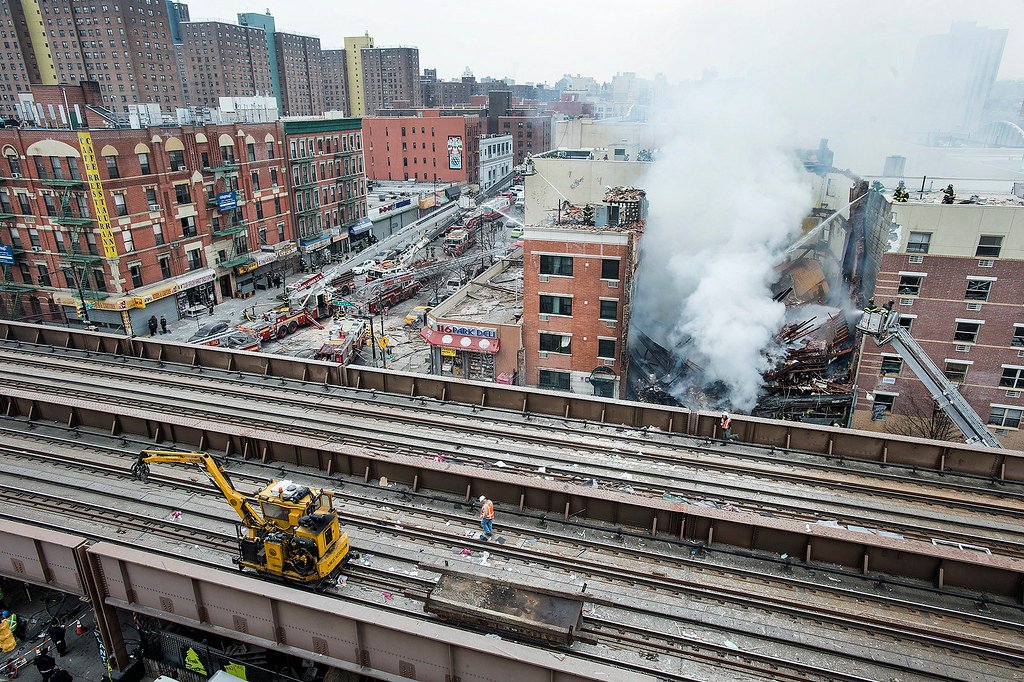Building Collapse in Abuja: An In-depth Analysis of Structural Failures in Nigeria
In the bustling capital city of Nigeria, Abuja, tragedy struck late on a Wednesday evening. A two-storey building, situated in the heart of the city’s downtown Garki area, collapsed. The consequences were dire, leading to the death of at least two individuals and injuring many others. Such incidents, unfortunately, are not uncommon in Nigeria and cast a dark shadow over the nation’s construction industry and its regulatory mechanisms. This analysis seeks to shed light on the larger issue of building safety in Nigeria and the recent incident in Abuja.
The Incident:
Close to midnight, at around 11 p.m., residents and workers in the Garki area witnessed the horrifying sight of a building, which served both residential and commercial purposes, crumble to the ground. The aftermath was chaotic. Rescuers, bystanders, and emergency personnel rushed to the site, scrambling to pull survivors from the debris.
By Thursday, the head of the city’s emergency agency, Abbas Idris, provided an update. Thirty-seven people had been rescued from beneath the rubble and had been evacuated to receive necessary medical treatment. The frantic search operations had transitioned to a more grim reality. “We are now in ground zero in the rescue operations, and we have not gotten any additional person under the rubble,” Idris remarked somberly to the gathered press.
Eyewitness accounts painted a harrowing picture. Yakubu Inuwa, a trader operating from a building close to the collapsed structure, recounted his experience to Reuters. “We helped to bring out some people. Two were not breathing. Over 20 people have been removed from the rubble,” he said.
As the dust began to settle, the question on everyone’s lips was clear: Why did this happen? And more importantly, why does this keep happening in Nigeria?
The Prevalence of Building Collapses in Nigeria:
The collapse in Abuja isn’t an isolated incident. Nigeria, Africa’s most populous nation, has seen numerous building collapses in the past. A pattern has emerged, where lax regulations, substandard construction materials, and potential corruption in the approval processes combine to create a ticking time bomb.
Regulatory Lapses:
In many developed countries, construction regulations are stringent, with regular inspections and a robust approval process in place. Nigeria, however, seems to lag in this regard. The regulations that do exist are often poorly enforced, leading to many buildings being constructed without proper oversight or adherence to safety standards.
This laxity provides fertile ground for corrupt practices. It’s not uncommon for builders to bribe officials to bypass certain safety checks or to get approval for building designs that might not be structurally sound. Such a culture of negligence and corruption places countless lives at risk.
Compromised Construction Materials:
Another alarming issue is the prevalent use of substandard construction materials. It’s an open secret in Nigeria’s construction industry that not all materials used meet the required standards. From inferior cement mixes to subpar steel reinforcements, the shortcuts taken to reduce costs can have catastrophic consequences. Buildings constructed with these materials are, understandably, more susceptible to environmental stresses and have a reduced lifespan.
The Human Element:
Beyond the structural and regulatory issues, there’s a deep-seated human tragedy associated with these collapses. Each incident leaves behind a trail of grief-stricken families, lost livelihoods, and a shaken community.
Take the recent incident in Abuja, for instance. For those who called the building home, the collapse wasn’t just a loss of property but potentially a loss of cherished memories, essential documents, and irreplaceable personal belongings. For businesses operating out of the building, the repercussions might mean financial ruin, loss of client trust, or even bankruptcy.
The psychological trauma for survivors and witnesses is immeasurable. The sounds of the collapsing building, the dust-filled air, and the cries of those trapped will undoubtedly haunt them for a long time.
The Way Forward:
As the investigations into the Abuja collapse kick off, the nation watches keenly. While finding the immediate cause of this particular collapse is vital, it’s equally essential to address the larger systemic issues at play.
- Strengthening Regulations: There’s a pressing need to overhaul the existing construction regulations in Nigeria. The regulations need to be robust, clear, and most importantly, enforced. Regular inspections, mandatory certifications, and rigorous approval processes should be the norm.
- Ensuring Quality: Strict standards for construction materials need to be established. Regular checks and audits of suppliers can ensure that substandard materials don’t find their way into construction sites.
- Awareness and Education: Property buyers and renters need to be educated about the importance of building safety. Encouraging people to demand safety certificates or inspection reports before making property decisions can instill a culture of safety-first.
- Addressing Corruption: A multi-pronged approach, involving stringent penalties for corrupt officials and whistleblowing mechanisms, can help curb the menace of corruption in the construction sector.
Conclusion:
The collapse of the building in Abuja’s downtown Garki area is a tragic reminder of the structural and systemic issues plaguing Nigeria’s construction industry. However, with concerted efforts from the government, construction industry, and the general populace, Nigeria can work towards building a safer, more resilient urban landscape.
Read More:
